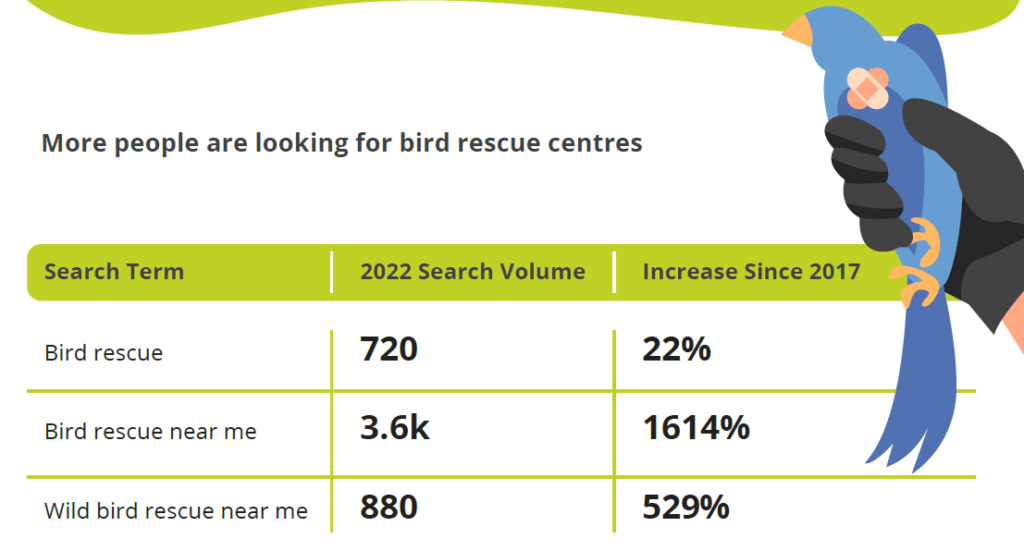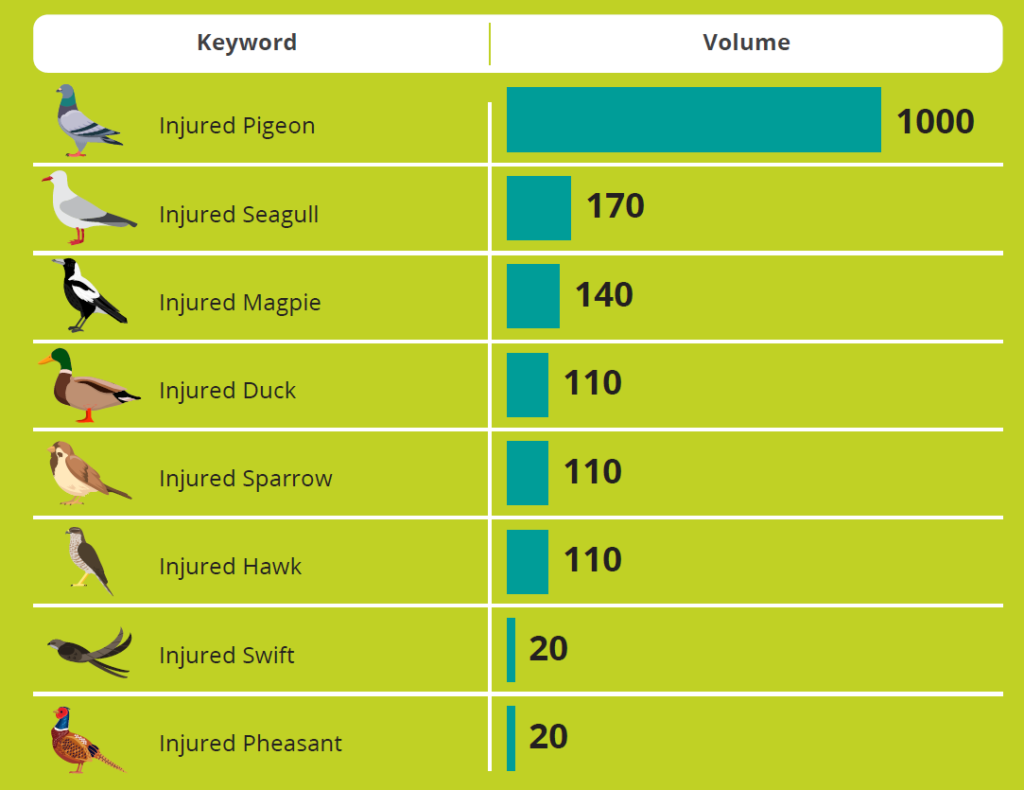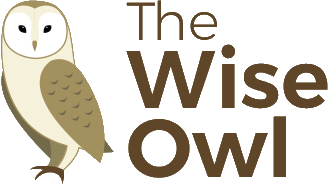We’ve probably all come across a sick, injured, or dying bird in our lives. They are delicate animals that are easily impacted by environmental changes and avian illnesses, and they can get themselves into real trouble by flying into windows and other manmade structures.
Most people probably wouldn’t know what to do if they came across a stunned bird or one with a broken wing. Thankfully though, it’s the 21st century, and most of us have a smartphone in our pockets to find the answers quickly using search engine websites like Google or Bing. The team at Love Garden Bird were curious to find out the terms that people were searching for when they come across a bird in trouble – and whether the amount of people searching for terms like ‘bird rescue’ or ‘injured pigeon’ has changed over the years.
But first, why does it matter?
All bird lovers will know that bird species have been declining for years. Scientists have been collecting data to track the rise and fall of bird species since 1970 and created an ‘index’ to record the state of bird populations. An index is used to indicate or measure numbers across a specific set of data in a clear way.
In this case, the number of the index (which starts at 100) falls up and down based on the fluctuation of bird populations. Anything above 100 shows an improvement, and anything below 100 shows a decline. It is much easier to measure population numbers in this way, as it strips out the need to look at different bird species and gives a handy overview.
Since records began in 1970, the index for all species of birds in the UK has fallen from 100 to 89.9. This is quite a significant drop.
If we look at the index more closely, we can see that farmland birds have seen the biggest dive in numbers since the 70s, followed by woodland and sea birds.

This drop in populations means that now, more than ever, we need to be looking after our wild birds.
What Google searches tell us about the state of wild birds
So, back to Google searches. We examined the amount of times that people in the UK searched for a certain terms in a month (known as ‘search volume’) to see what it could tell us about sick and injured birds. Here is what we found.
More people are looking for bird rescue centres

The number of people searching for bird rescue and similar terms has increased since 2017.
Google Trends is a tool that shows us how popular a term is over a long period of time. The Google Trends chart below tells us that interest in Bird Rescues hit an all-time high last year. The trend has died down slightly but is still higher than it was before 2021.

Pigeons are the most accident-prone bird
As one of the most common birds in the UK, it’s almost no surprise that pigeons tend to get injured in higher numbers than any other bird.
People searched for ‘injured pigeon’ more frequently than any other injured bird term.

People may be less willing to help injured birds themselves than they were during lockdown
Interestingly, we saw that the number of people searching for terms like ‘How to save a baby bird from dying’ went up in 2021, but it went back down in 2022.

Everyone was spending a lot more time outside in 2021 as COVID lockdown restrictions were eased and people were encouraged to meet outdoors. Maybe this led to a greater appreciation of nature and animals? Maybe people just felt they had more time on their hands to help? Either way, people were more eager to try and save bird lives.
Read More: How can I help to save nature?
Method
Keyword research was conducted to identify keywords around injured birds. We used a marketing tool called SEMRush to backdate the search volumes for these keywords to identify trends in the data.
Sources
https://www.gov.uk/government/statistical-data-sets/env07-wild-bird-populations-in-the-uk
SEMRush
Ahrefs
Gemma Sharp is the resident writer for Love Garden Birds, a supplier of premium bird food and accessories. She has had a genuine love for our feathered friends from a young age, and has dedicated a lot of her time to learning all there is to know about them. If you’re struggling to pick the right bird feed for your garden, need help identifying a type of wild bird, or can’t decide where to put a nesting box, Gemma is the person to go to! She is passionate about sharing her years of learnt knowledge with the public. In her free time, she can be found feeding birds at home with her three young boys.



